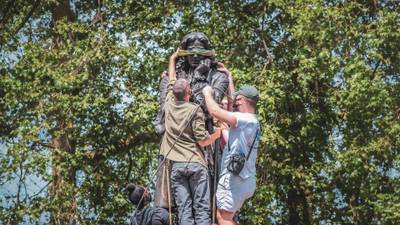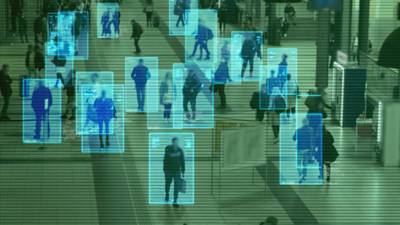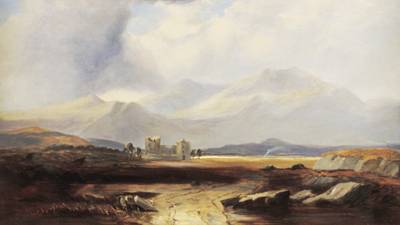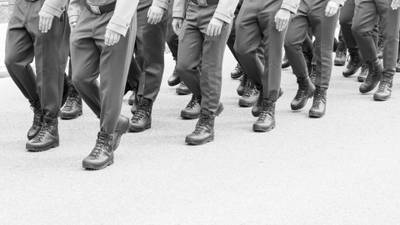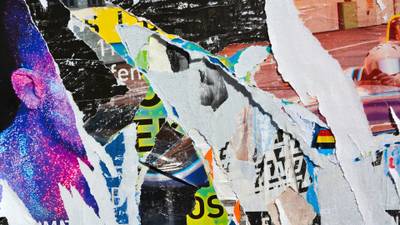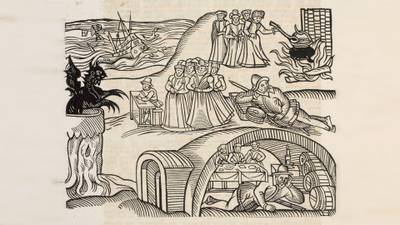Join us online and explore Eurovision like never before.
Eurovision is so much more than sequins and catchy choruses – it’s a cultural phenomenon that reflects the complexities of identity, geopolitics, society, and global culture.
In this 10-week online short course, you’ll go beyond the music and performances – although we’ll dissect these too – and explore the cultural, societal, and political impact of Eurovision.
Learn across disciplines
You’ll examine Eurovision through the lens of visual culture, memory, and identity, combining teaching in media studies, visual and popular culture, and politics.
Develop in-demand skills
You’ll build career-enhancing skills in media and content analysis, cultural analysis and commentary, critical thinking, public engagement, communication, and social media outreach.
Join a vibrant community
You’ll study alongside a diverse, international cohort with a passion for media, culture, and performance studies, fostering a rich exchange of ideas and perspectives.
Outstanding expertise
You’ll learn from Dr Barbara Barreiro Leon, a globally recognised expert in Eurovision.
Barbara regularly attends Eurovision and related international events, bringing you first-hand insight and unique access to behind-the-scenes perspectives.
Who can join this online Eurovision course?
This course is open to all.
Anyone with an interest in Eurovision’s cultural, political, and entertainment dimensions is welcome to join us, including:
- Eurovision fans from Europe, Australia, North America, and beyond
- students and professionals in media, cultural studies, music, international relations, and creative industries
- content creators and influencers interested in cultural representation, global fandom, and understanding global audiences
- lifelong learners with a passion for popular culture.
What you’ll study
You’ll work through a series of modules that explore Eurovision as a cultural, political, and media event.
Each module combines different theories and perspectives with case studies, visual analysis, and interactive learning.
You’ll cover topics including:
- Introduction to Eurovision Studies: History, evolution, and cultural significance
- Cultural Representation and Identity: Gender, ethnicity, language, and diversity on stage
- Media, Spectacle, and Visual Culture: Staging, costume, visual storytelling, the aesthetics of performance and media framing
- Politics and Power in the Contest: Soft power, diplomacy, voting patterns, and geopolitical tensions
- Memory, Nostalgia, and Heritage: Eurovision as a cultural memory archive
- Gender and Sexuality in Eurovision: LGBTQ+ visibility, inclusivity, and identity politics
- Decolonising Eurovision and Diasporic Perspectives: Postcolonial critiques and the legacy of empire
- Globalisation and Transnational Reach: Eurovision beyond Europe, international audiences and global fandom
- Fan Culture and Participatory Communities: Activism, creativity, and the rise of social media engagement.
By the end of this Eurovision course, you’ll be able to...
-
Analyse how cultural memory and shared histories can be represented in different ways, using the Eurovision Song Contest as an example.
-
Understand how European history and politics have shaped, and been reflected in, the Eurovision Song Contest.
-
Use tools from different academic fields to study how Eurovision represents national identity, history, and memory.
Study Eurovision online with the University of Aberdeen
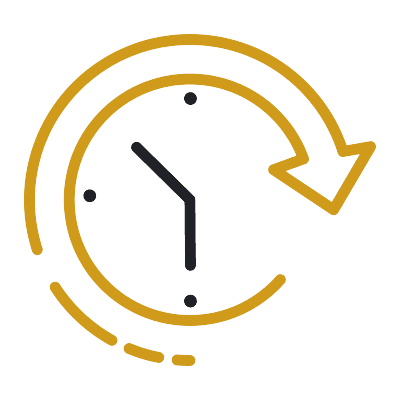
Fits around full-time work
This online course fits around work, with flexible hours and 24/7 study access.
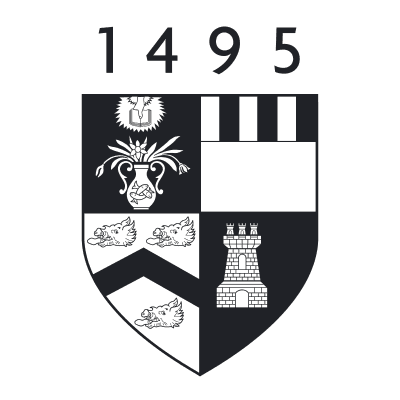
Over 525 years of excellence
Study with the fifth-oldest university in the English-speaking world, founded in 1495.

You’re in expert hands
We’ve been delivering online and distance learning for decades.
How you’ll study
Online learning
This distance-learning Eurovision course is delivered flexibly, 100% online.
You can learn with us anywhere, no student visa required, and manage your study hours to suit you.
Your teaching
Teaching is delivered through MyAberdeen, our online Virtual Learning Environment (VLE). It holds all the materials, tools and support you’ll need in your studies. Take a look around MyAberdeen.
You can access your learning materials on computer, smartphone and laptop, 24 hours a day. You’ll find a range of online resources available, including:
- pre-recorded video lectures and downloadable content
- live online drop-in sessions with your tutor
- podcasts
- slideshows and quizzes
- reading materials
- discussion boards with your tutors and peers
- online access to our award-winning Sir Duncan Rice Library.
Fun and immersive learning
This course features interactive teaching methods – including immersive activities like thematic dress-up aligned with weekly topics – to create a dynamic learning environment that deepens your understanding of identity and performance.
Research-led teaching
Teaching is directly informed by the latest research in cultural memory, media representation, and identity politics, ensuring content is both current and deeply relevant.
Your tutors
This course is delivered by our School of Language, Literature, Music and Visual Culture.
This School excels at integrating Film & Visual Culture with Language and Cultural Studies, making it an ideal place to explore complex cultural phenomena like Eurovision from diverse academic perspectives.
You’ll learn from an academic expert specialising in Eurovision and popular culture, combining rigorous research with active engagement in the field.
This course is assessed entirely online.
Your progress will be evaluated through a recorded presentation, allowing you to demonstrate your understanding and engage with course themes in a flexible and accessible format.
This course features 20 hours of pre-recorded content, delivered over 10 weeks.
This includes a one-hour lecture and a one-hour workshop per week. These are recorded sessions that you can watch anytime.
Self-directed learning
You’ll also need to complete approximately 100 hours of private study over the 10 weeks, including readings, viewing assignments, research, and preparation for assessments.
Live online drop-in sessions
You can interact with your tutor via live drop-in sessions. A one-hour session will run each week. Attendance is optional.
Weekly study hours
The course totals around 120 study hours, which is around 12 hours per week over the 10-week course.
This is an indicative guide to the time required for a typical student at this level to achieve the learning outcomes. This includes time for independent study, as well as teaching and assessments.
You can largely set your own study hours to cover the materials. MyAberdeen is available 24/7, so you can log in and study when it suits you.
Activities at fixed times
There may be some activities scheduled at fixed times, such as online meetings with your tutor or assessments with deadlines. But otherwise, you can access and work through the course at your convenience.
Our first-class support structure will ensure that you aren’t alone in your studies. You’ll have contact with your coordinator via email, MyAberdeen and Microsoft Teams. You can use social media and discussion boards to chat with your fellow students too.
We provide a wide range of services to support you in your studies and beyond:
- Careers and Employability Service
- Disability support
- IT support
- Library support
- Student Support Service – help with finances, wellbeing, and non-academic issues
- Student Learning Service – study skills support and advice
- Aberdeen University Students’ Association (AUSA) – run by students for students
- Toolkit – clever apps and free training that can make your study life easier
Wherever you are in the world, you’ll feel part of our very special Aberdeen learning community.

Your course coordinator
Dr Barbara Barreiro Leon
Barbara is a Lecturer in Film, Visual Culture, Spanish and Latin American Studies.
A world-leading expert on Eurovision, cultural memory, and media, she’s also a regular attendee at the Eurovision Song Contest and co-host of The Eurovisionphiles podcast.
Barbara’s research focuses on how platforms such as Eurovision and music videos construct, challenge, and negotiate narratives of heritage, memory, and nationhood.
Where this will take you
Build your learning
Continue to develop your knowledge and skills in this area with our related online short courses.
- Media and Memory
- Popular Cultures and Subcultures: Mass and Minority Perspectives
- Transnational Cinema and Comics
- View all history and society courses
You can earn credits towards postgraduate qualifications, including Masters degrees, with many of our online short courses.
Careers
Through this course, you’ll develop career-aligned skills in:
- research methods
- comparative evaluation
- cultural analysis and commentary
- media and content analysis
- public engagement and outreach
- political insight.
This course supports career development in:
- Media and journalism
- Cultural industries and event management
- International relations and cultural diplomacy
- Creative content production and public engagement.
Academic pathways
This course also provides a strong foundation for further study in:
- Film & Visual Culture
- Media and Memory
- Popular Cultures and Subcultures
- European and Latin American Literatures and Cultures
- Creative and Cultural Communication.

Free career support
Access our free careers service while you study.
- 1:1 appointments
- CV checks
- Interview prep
- Job opportunities
Choose the University of Aberdeen for flexible online short courses

Learn anywhere
On smartphone, desktop and laptop, with no need for a student visa.

Flexible
Flexible hours and 24/7 access, so you can study when it suits you.

20% alumni discount
University of Aberdeen alumni get 20% off fees for this online course.
Entry requirements
Entry requirements
We welcome students from all over the world.
This course has no formal entry requirements. You do not need to provide proof of your qualifications.
But you do need to check the entry guidance above to understand the level of teaching delivered, to decide if this course is right for you.
If you do not have qualifications from the UK, check the equivalent teaching level for your country.
Visa requirements
You do not need a student visa to study online with us.
English language requirements
Teaching is delivered in English.
You do not have to provide proof of your English language skills to join this course. But we want to make sure that you can use English well enough to study successfully.
Recommended level of English
For this course, we recommend the following level of English language proficiency.
These are our Postgraduate Standard requirements, and these are minimum scores.
IELTS Academic, IELTS UKVI Academic, or IELTS Online (not IELTS Indicator or IELTS General Training)
- 6.5 overall
- 5.5 for listening, reading and speaking
- 6.0 for writing
TOEFL iBT or TOEFL iBT Home Edition
- 90 overall
- 17 for listening
- 18 for reading
- 20 for speaking
- 21 for writing
- TOEFL DI code is 0818
Cambridge English: B2 First, C1 Advanced, or C2 Proficiency
- 176 overall
- 162 for listening, reading and speaking
- 169 for writing
LanguageCert Academic / LanguageCert Academic SELT
- 70 overall
- 60 for listening, reading and speaking
- 65 for writing
Oxford ELLT Digital – English Language Level Test Online
- 7.0 overall
- 5.0 for listening, reading and speaking
- 6.0 for writing
PTE Academic (online test not accepted)
- 62 overall
- 59 for listening, reading, speaking and writing
Skills for English: SELT
- B2 pass with merit
Duolingo – tests taken from 1 July 2024 onward
- 120 overall
- 95 for listening, reading and speaking
- 105 for writing
University of Aberdeen English Pre-sessional Programme (PSE)
- Pass
- Valid for one year. Refresher can be offered if out of date
Pre-sessional academic English preparation programmes undertaken at other UK universities
- Pass at an equivalent of 6.5 (C1)
- B2 in all four skills
- Certification must be within one year prior to the start of your course
For full information about language requirements, see our English Language Requirements page.
You will need access to:
A computer (PC, laptop or Mac) with an up-to-date operating system
Most teaching materials are smartphone- and tablet-friendly. But we recommend a proper laptop or desktop for completing assignments comfortably.
Reliable internet access
We recommend:
- a wired connection
- a minimum download speed of 2 Mbps so you can take part fully in live sessions.
Speakers or headphones
- We recommend a headset with built-in microphone and earphones if you’re likely to study in an environment with background noise.
- A webcam is optional, but you may like to use one for some interactive sessions.
Software
We’ll give you access to Office365 applications. This means you can use online versions of Microsoft Word, Excel, PowerPoint and OneDrive and install these programs on up to five personal devices.
If your course requires specialist software, we’ll provide you with access to this and a licence that lasts throughout your studies.
See our detailed IT requirements for more information.
When you study with us, you can expect a first-class support structure so that you’re never alone in your studies.
But learning online does mean you have to motivate yourself and manage your own time.
Your most important commitment will be time – the time to work through, reflect on and understand your teaching materials.
Before you start a course that involves a high degree of independent study, we recommend looking at the time you will be able to devote to your studies each week:
- Be realistic
- Create a weekly schedule as a guide
If you have any questions about studying online, get in touch with our friendly team. We’re here to help.
Fee payment
Your course fee needs to be paid in full before you start your course.
We accept payment via Visa Debit, Visa Credit and Mastercard.
Ways to save
You may be able to get help funding this course via:
- discounts – if any discounts are available for this course, they’ll appear in the section below
- employer sponsorship – we accept full and partial fee payments from sponsors.
Find out more about funding options.
Student card
All our students are entitled to a University of Aberdeen student card. This gives you access to a range of student discounts around the city and online.
Learning resources
Access to all the books and resources you need are included in your tuition fee. They’ll be made available to you online and you do not have to buy your own copies.
Printing
You may wish to set aside a small budget for printing, depending on how you like to work.
This course has no entry requirements and is open to all.
We warmly welcome anyone who’s interested in Eurovision and developing their skills and understanding in visual and popular cultures, media studies, cultural memory and heritage.


